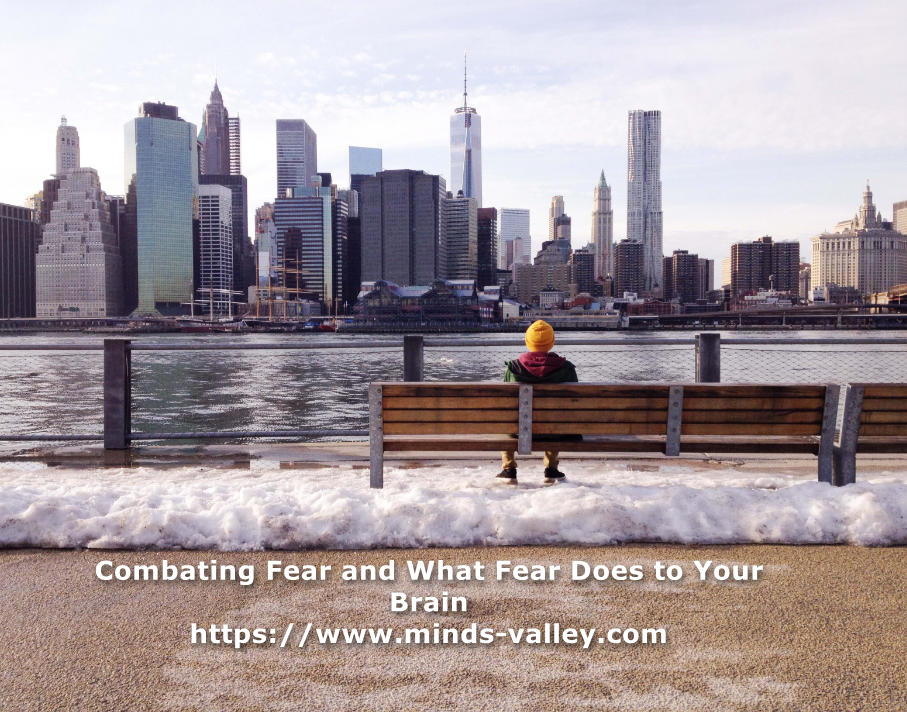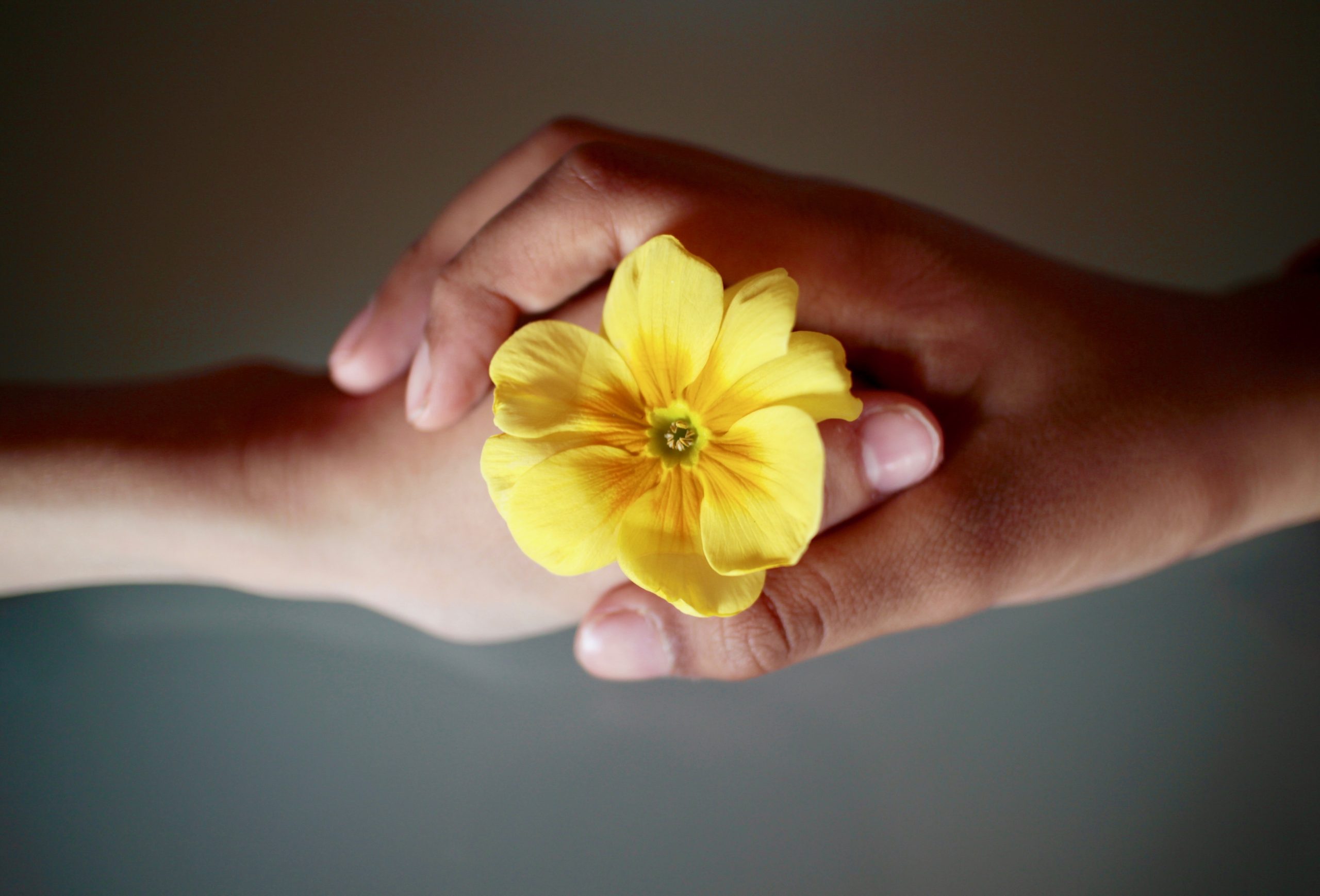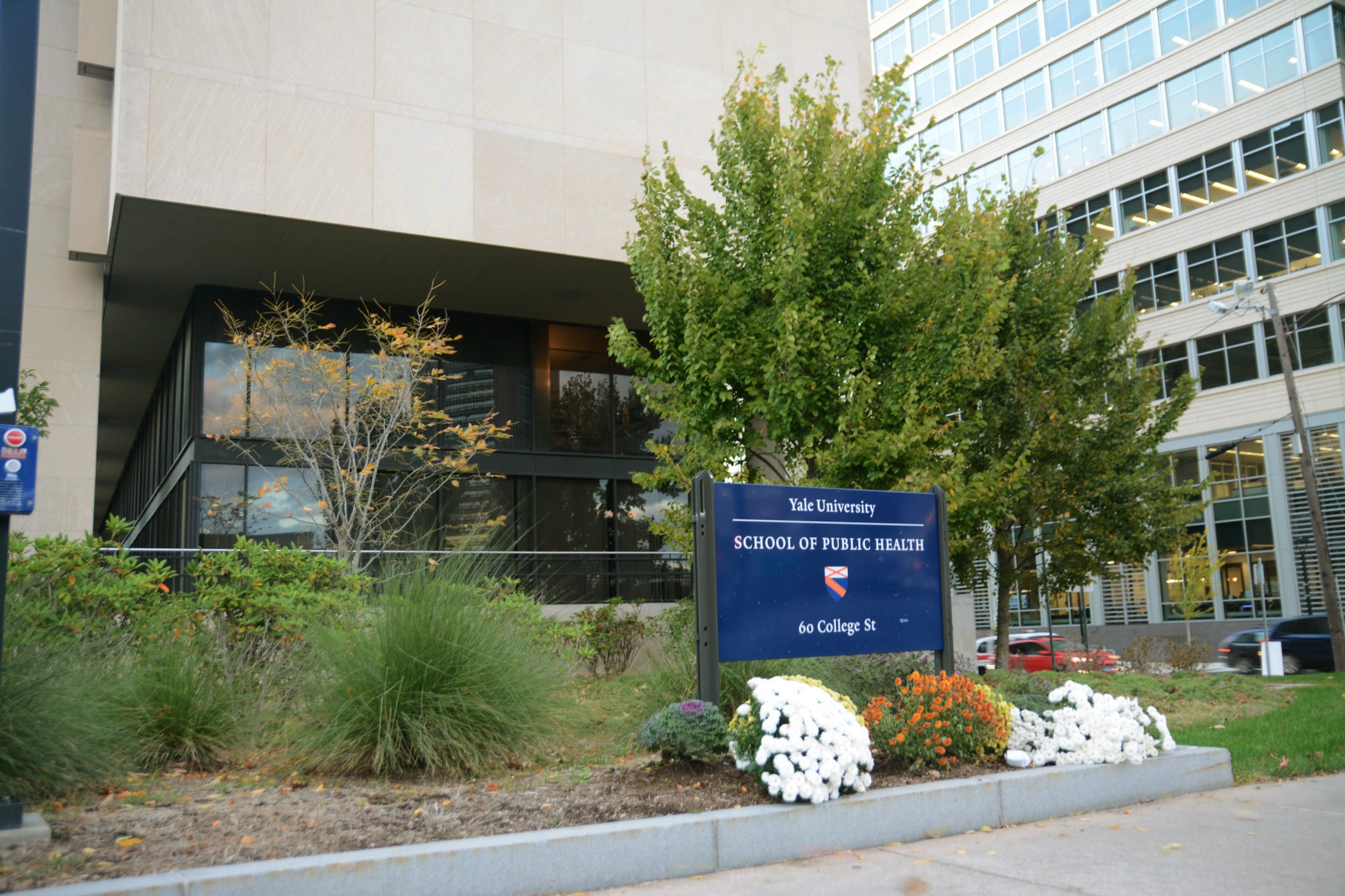
5 Apps and Online Resources That Can Help You Repair Your Relationship With Food
Living in a society that celebrates unhealthy eating habits can sadly have a detrimental effect on our relationship with food and eating.
If you have a complicated relationship with eating or with food and want to work towards a more balanced mindset, then these apps and online resources might help.
1. Nourishly – Nutrition & Diet
Nourishly is an app designed to help you build a healthy and balanced relationship with food and your body through a non-diet approach.
MAKEUSEOF VIDEO OF THE DAYSCROLL TO CONTINUE WITH CONTENT
You can set up Nourishly to support you in various areas of well-being, from eating disorder recovery to general wellness. You can also use the app in conjunction with a professional treatment team if appropriate.
If you want to repair your relationship with food and eating, these features can support your journey:
- Meal Planning. Nourishly offers preset meal plans as well as the opportunity to create your own. Choosing a template meal plan could help take the pressure off deciding how and what to eat each day of the week as you repair your relationship with food.
- Logs. This displays information from recording your meals, feelings, and more to create a log that can uncover important patterns and insights into your well-being.
- Meals and snacks tracking. Recording how you felt when you ate, whether you ate alone or with others, if you followed your meal plan, and logging your hunger levels before and after meals can provide a full picture of your relationship with food and eating.
- Track thoughts and feelings. You can jot down your concerns, thoughts, and feeling independent of meal times to create a log of your general well-being to help pinpoint any triggers or issues.
- Clinician connect. If you’re receiving treatment from a registered dietitian or other healthcare provider, you can link your records to your treatment team for additional support.
Overall, Nourishly is a great app to focus on rebuilding a healthy relationship with food and eating while supporting your overall well-being. Alternatively, if you like the format of Nourishly but want a more concentrated focus on eating disorder recovery, take a look at Recovery Record, created by the same developers.
Download: Nourishly – Nutrition & Diet for Android | iOS (Free)
2. Way
The Way app was created to help you find peace in your relationship with food and concentrate on what makes you feel good in and about your body.
Grounded in mindfulness and CBT (Cognitive Behavioral Therapy), the Way app can help you repair your relationship with food in several ways:
- Self-reflection. Way asks you questions to help you uncover the thoughts, feelings, and emotions that rule your relationship with food. (For example, the first question asks what the first “food rule” you ever heard was, who said it to you, and how prominent it still is in your life today.)
- Identify your “Peace Point”. The aim of Way is to reach a “Peace Point”—a central goal personalized to you in finding peace with food and your body. You can watch the explanation videos and view examples of Peace Points if you’re unsure of how to approach this.
- Reflect on your progress. Use the Reflections tab to look back over the steps and progress you’ve made when you feel lost.
- Refresh your experience. The Sessions tab allows you to revisit a session any time you want to consolidate your learning.
Using Way is not an experience to rush through, but rather a daily practice of working through each session as and when you’re ready. Your progression is marked through earning leaf points and growing your own tree, which is a symbolic and illustrative way of representing your growing healthy relationship with food.
Download: Way for iOS (Free, subscription available)
3. Feel Better by Deliciously Ella
For some, focusing too much on food and eating can be counter-intuitive to disordered eating recovery. If you find hyper-focusing on food overwhelming, then approaching your health holistically may be a better solution.
Enter Feel Better by Deliciously Ella—a wellness app that provides nutritious recipes without restrictions or diet rules, supported by other wellness tools. There isn’t an explicit focus on repairing food and eating relationships here, but rather on understanding that eating and well-being don’t occur in isolation. Instead, mindfulness, movement, and sleep quality are equally prioritized.
The features of Feel Better by Deliciously Ella that can gently help you repair your relationship with food and eating include:
- Healthy plant-based recipes. Delicious, nutrient-packed recipes made from whole ingredients and without a calorie focus can help you focus on health without restrictions or rules.
- At-home workouts. We’re not talking weight-loss workouts, but rather mindful movements, including yoga, barre, and pilates classes, to support your well-being.
- Meditation tools. Mindfulness is at the core of this app, and there’s no shortage of meditation, breathwork, and other mindfulness tools to encourage self-awareness and compassion.
- Sleep tools. With a whole section dedicated to sleep, Feel Better offers tools to help you sleep better, including sleep sounds, articles, and relaxation programs.
While Feel Better by Deliciously Ella isn’t designed explicitly for improving your relationship with food, it certainly can be used to promote a healthy and balanced approach to eating and your mental well-being.
Download: Feel Better by Deliciously Ella for Android | iOS (Free, subscription available)
4. The Full Helping Blog
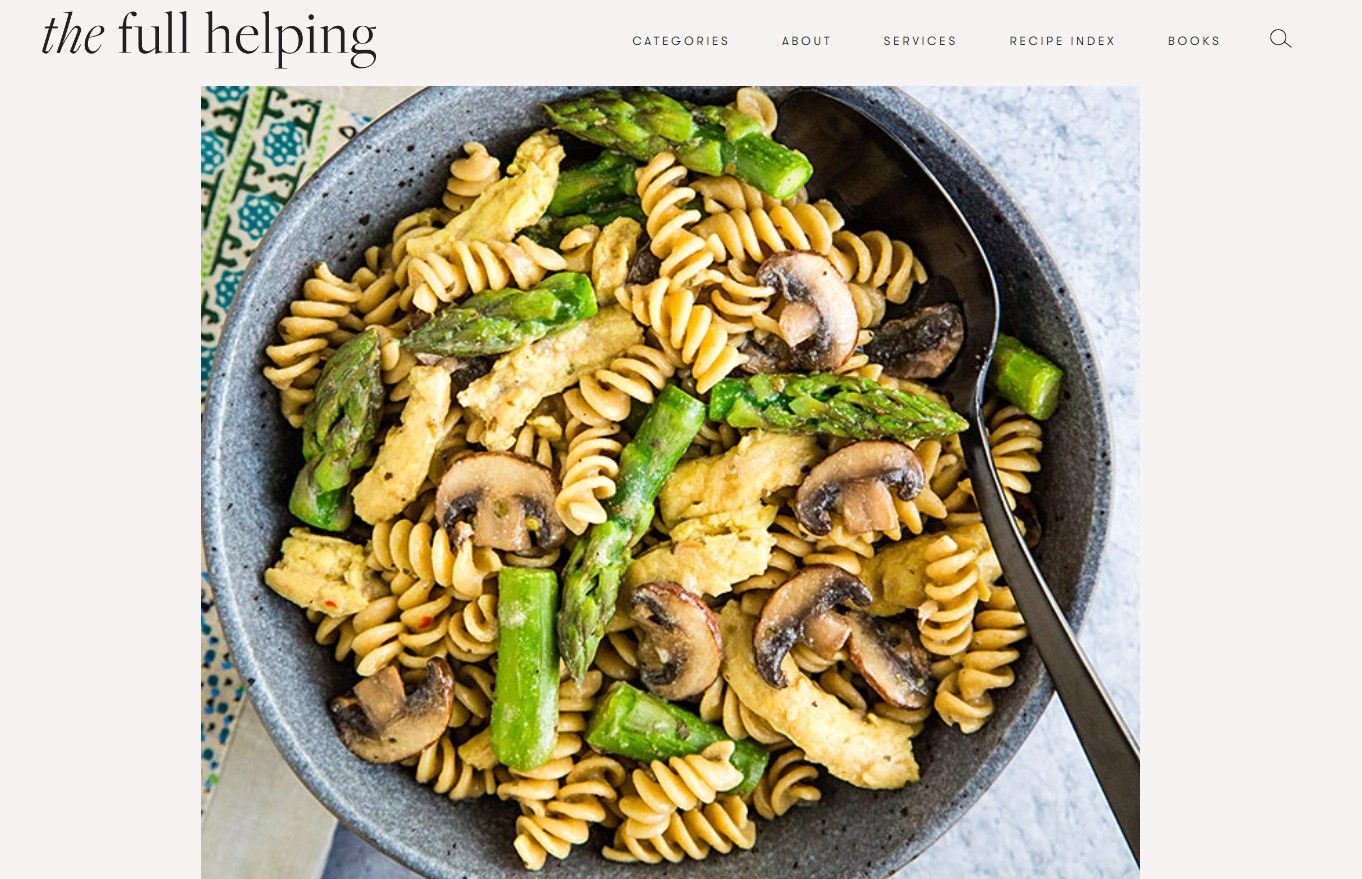
Created by registered dietitian Gena Hamshaw, The Full Helping is a blog that provides nourishing vegan recipes, reflections on mindfulness and self-care, and resources to help you have a more informed and compassionate relationship with food.
Aside from a robust recipe index, you’ll find resources on nutrition, well-being, food and healing, and more to encourage a balanced relationship with food. Check out the weekly “Weekend Reading” section for insights and health articles for reminders that your well-being goes beyond what’s on your plate.
If you need professional support for your relationship with food, you can find Gena’s dietetic and counseling services under the Services tab.
5. Registered Dietitians and Health Care Professionals on Instagram
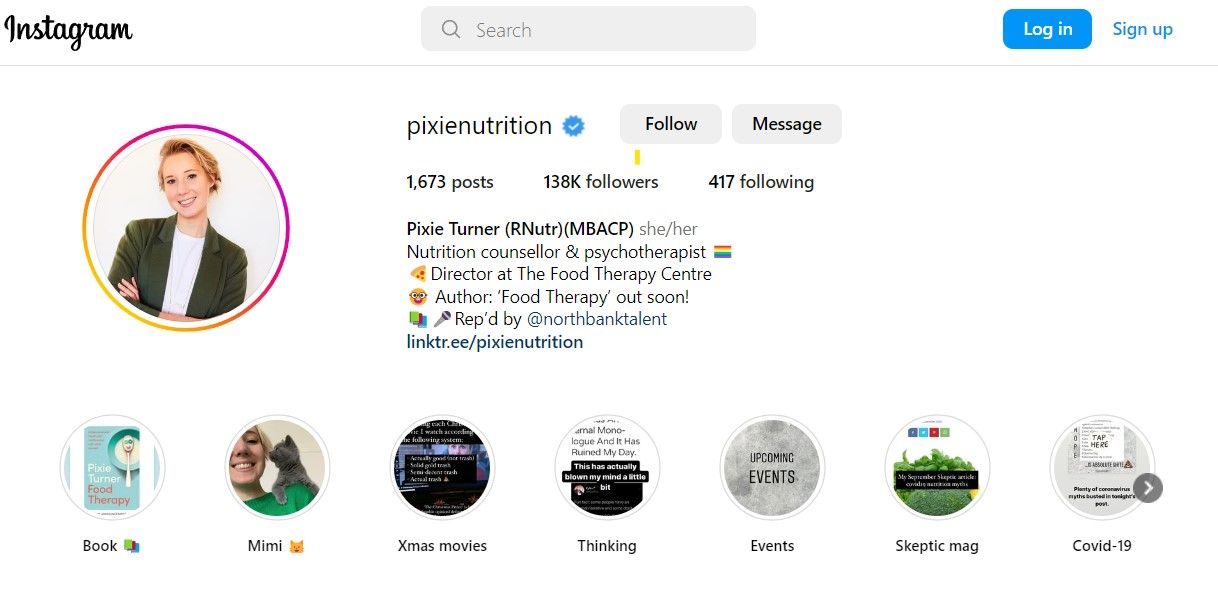
Despite social media getting a bad rap for our mental health, it can be a useful source of well-being support when used correctly. The following Instagram profiles are created and run by registered health and medical professionals who debunk diet claims, clear up confusing diet messages, and encourage you to forget the rules and eat healthily:
- Dr Joshua Wolrich MBBS MRCS. NHS doctor HAES®️ (Health at Every Size), and nutritionist (MSc ANutr) Dr. Joshua Wolrich, uses his platform to debunk diet myths and encourages his followers to eat a healthy and balanced diet without restrictive diet rules.
- Pixie Turner (RNutr)(MBACP). Nutrition counselor and psychotherapist, Pixie Turner, aims to help people repair their relationship with food through her Instagram posts.
- Laura IU • RD, CDN, CNSC, RYT. Laura is an Anti-Diet Registered Dietitian who spends the majority of her social media time debunking diet myths and claims, sharing no-fuss advice, and generally promoting a balanced relationship with food and eating.
- The Full Helping. Registered dietitian, Gena Hamshaw, from the blog of the same name shares plant-based recipes, mindful eating, and self-care tips, along with promoting body positivity and mental health awareness.
Using social media mindfully can help you repair your relationship with eating and food. Try reviewing the accounts and content you’re exposed to and remove any that cause you to feel anxious, especially when it comes to food and eating.
You Can Repair Your Relationship With Food Using Online Help
Despite society pressuring us to eat and look a certain way, there is a growing support network of registered health professionals, official apps, and social media accounts that are creating a backlash. If you’ve been struggling with your relationship with food, then hopefully, the above resources can help you start to recover.
If you or a loved one need further or professional help with eating disorder recovery, however, check out Project HEAL—a nonprofit organization offering equitable access to eating disorder treatment.
